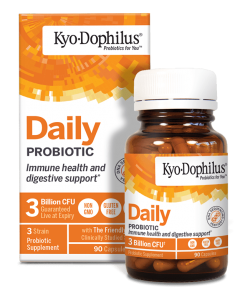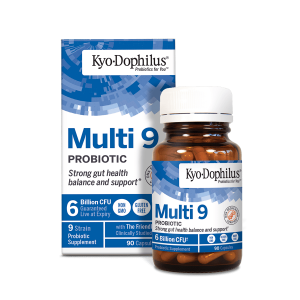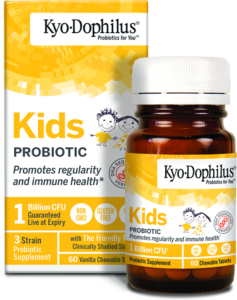Microbiome. The word alone sounds complicated. In fact, the microbiome is one of the body’s most complex systems — and one of its most important. Essentially, the microbiome is the collection of microbes (bacteria, fungi and viruses) that lives in and on the human body. These microbes number in the trillions and impact nearly every bodily function. In fact, the human body has about 10 times more bacterial cells than human cells, most of which reside in the large intestine. This collection of microbes is known as the gut microbiome. While promoting healthy digestion and nutrient absorption is the most obvious role of the gut microbiome, it isn’t the only role. The healthy bacteria of the gut microbiome also impacts the body’s inflammatory response, immunity (because up to 70 percent of the immune system resides in the gut), and even functions like mood, blood pressure and cognitive function. Scientists are still understanding how exactly the microbiome can do all of this, but one thing’s clear: a healthy microbiome is linked to overall health. Let’s work on understanding more about the microbiome.
So how can you support a healthy microbiome? Here are five simple ways:
-
Repopulate with probiotic-rich foods.
One, or ideally two, servings of probiotics per day will serve up healthy bacteria and keep the microbiome running smoothly. Yogurt, kefir, sauerkraut, kimchi and pickled vegetables are all natural sources of probiotics. Tip: Purchase these products from the refrigerated section to be sure that the cultures remain intact.
-
Take a supplement.
Probiotic supplements are another great way to inject a bit more bacteria into your diet. Just be sure that the packaging of the supplement indicates that the bacteria will be live at expiration, rather than simply live at manufacture. Some labels may indicate that the supplements are heat-stable or stomach acid resistant, which means they’re able to reach the large intestine intact. Keep these supplements in a cool, dark and dry location to promote the stability of the bacteria inside. Learn more about how to take care of your probiotics here.
-
Support with prebiotics.
Think of prebiotics as food for bacteria. And bacteria love fiber. Boosting the diet with soluble fiber from sources such as chia seeds, flax seeds, hemp fiber, sprouted grains and organic fruits and vegetables will give these microbes lots to munch on.
-
Reduce sugar intake.
As good bacteria need soluble fiber to survive, bad bacteria feast on sugar. Eliminate or minimize refined sugar in the diet to minimize unhealthy yeast in the digestive tract.
-
Diversify.
According to the American Gut Project, eating a wide variety of plant foods and soluble fiber is linked with a greater diversity of gut bacteria. Essentially, different bacteria prefer different foods, so the more diverse the diet, the more diverse the bacteria in the gut. And when it comes to bacteria, the more diverse the merrier. Ideally, aiming for 25 to 35 different species of plant foods can change the diversity of the microbiome within days. Bonus points for organic plants: Soil that clings to garden-fresh food is teeming with beneficial microbes.
This article is for informational purposes only. This article is not, nor is it intended to be, a substitute for professional medical advice, diagnosis, or treatment and should never be relied upon for specific medical advice.




Share this Post